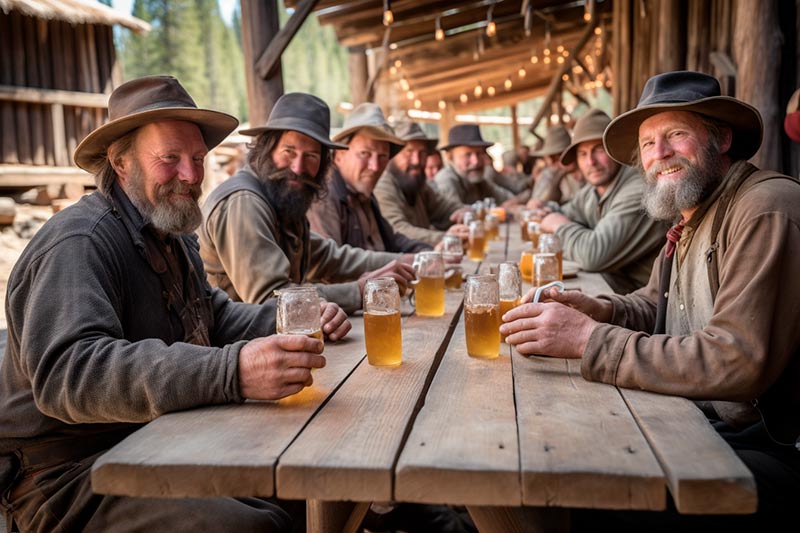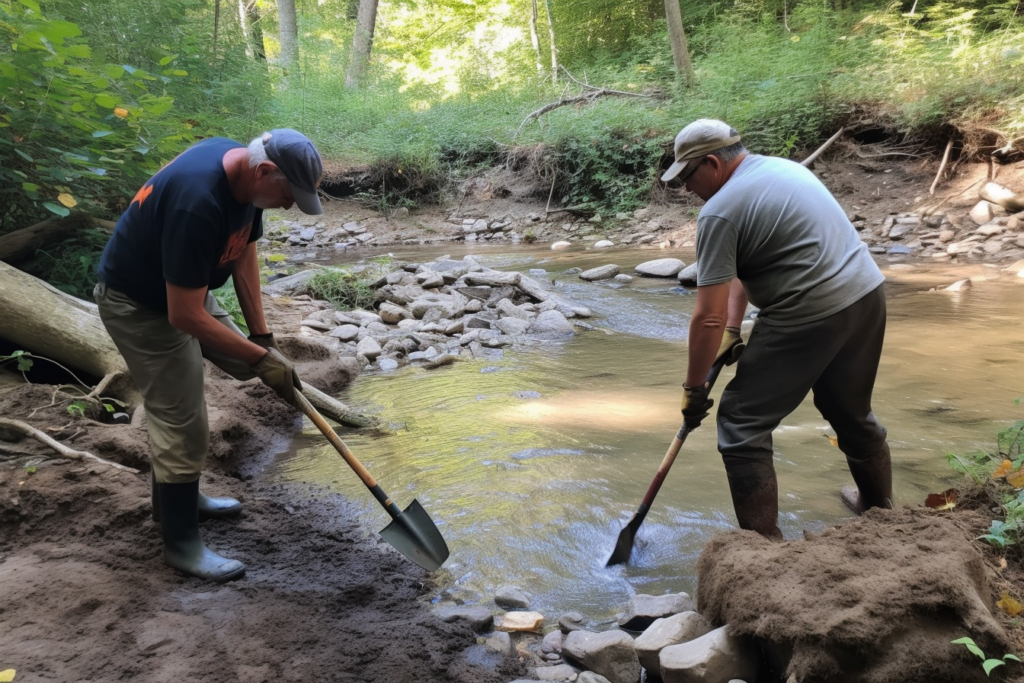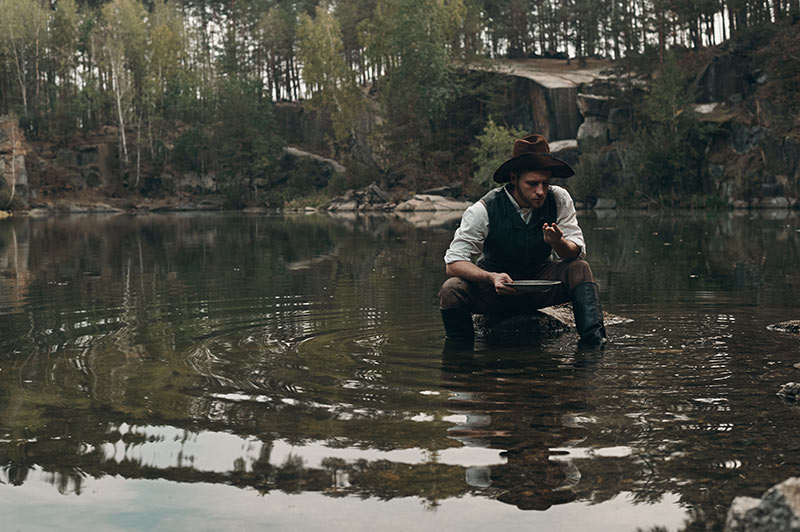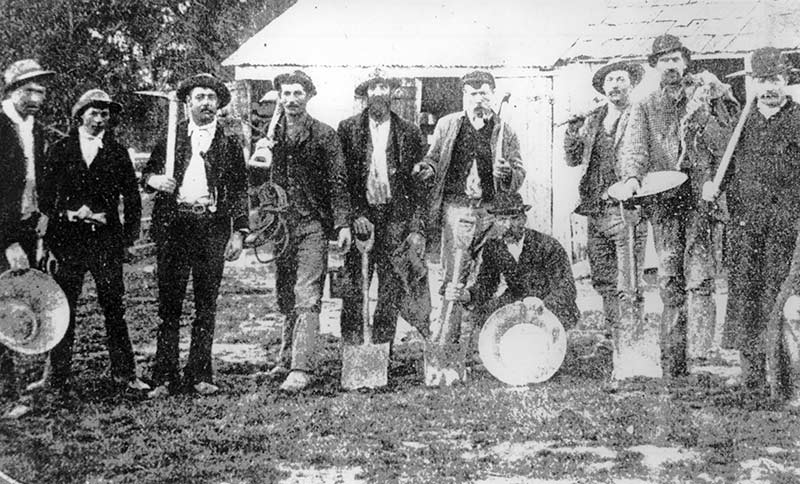Introduction
The importance of proper etiquette in gold prospecting: Gold prospecting is a fascinating and rewarding hobby for many enthusiasts. However, as with any outdoor activity, it is essential to practice proper etiquette while searching for the precious metal. Good prospecting manners not only ensure a pleasant experience for you and others in the area, but they also help maintain a positive image of the prospecting community. Furthermore, demonstrating respect for the environment and fellow prospectors can pave the way for future generations to enjoy this exciting pastime.
The impact of prospecting on the environment and fellow prospectors: Gold prospecting, if not done responsibly, can have negative effects on the environment and other prospectors. Irresponsible practices can lead to pollution, habitat destruction, and the depletion of natural resources. Additionally, disrespectful behavior towards other prospectors can create tension, conflicts, and a hostile atmosphere, making it difficult for everyone to enjoy their time in the field.
The purpose of the article: to provide guidelines for responsible prospecting: This article aims to offer a set of guidelines that will help prospectors maintain a harmonious relationship with the environment and their fellow enthusiasts. By following these principles, you can ensure that your prospecting activities are responsible, sustainable, and enjoyable for all.
Environmental Considerations
Leave no trace principles
Packing out trash and debris: While prospecting, make sure to pack out any trash and debris you generate or come across. This includes food wrappers, cigarette butts, and any broken equipment. Leaving trash behind can harm the environment, negatively impact wildlife, and ruin the experience for other prospectors.
Minimizing disturbances to natural resources: When digging, panning, or sluicing, be mindful of the surrounding environment. Avoid causing unnecessary damage to vegetation, soil, and rocks. Always refill any holes you dig and try to leave the area as close to its natural state as possible.B. Protecting water sources
Avoiding pollution and contamination: Keep water sources clean by not introducing pollutants, such as oil, fuel, or soap, into rivers or streams. Wash your equipment and hands away from the water source to minimize contamination.
Proper disposal of chemicals and waste materials: When using chemicals for gold extraction, like mercury or cyanide, ensure proper disposal according to local regulations. Never dump these chemicals into water sources or the surrounding environment, as they can cause significant harm to wildlife and ecosystems.C. Respecting wildlife and their habitats
Avoiding sensitive areas during nesting or breeding seasons: Be aware of any sensitive wildlife habitats in the area where you are prospecting, such as nesting or breeding grounds. Refrain from prospecting in these areas during critical periods to minimize disturbance to animals and their young.
Maintaining a safe distance from wildlife: While it may be tempting to approach wildlife for a closer look or a photo, always maintain a safe distance to avoid stressing the animals or putting yourself in danger. Remember that you are a visitor in their home, so give them the space they need to thrive.
Respecting Fellow Prospectors
Claim and property boundaries
Understanding claim laws and regulations: Familiarize yourself with the laws and regulations governing mining claims in your prospecting area. This includes knowing the process for staking a claim, maintaining its validity, and any restrictions that may apply. By understanding these rules, you can avoid unintentional claim jumping and potential conflicts.
Respecting the rights of claim owners: Always respect the rights of those who have legally staked claims. Do not prospect on someone else’s claim without obtaining permission first. If you are unsure about a claim’s status or boundaries, consult local records or maps to avoid unintentional trespassing.B. Sharing common prospecting areas
Practicing good communication and cooperation: In areas open to public prospecting, maintain open lines of communication with other prospectors. Share information about the area’s conditions, any potential hazards, or successful techniques. Cooperating with others can enhance everyone’s experience and increase the chances of finding gold.
Resolving conflicts in a respectful manner: If conflicts arise over prospecting areas, equipment usage, or other issues, approach the situation calmly and respectfully. Be open to hearing the other person’s perspective and seek a resolution that benefits all parties involved. Remember that prospecting should be a fun and rewarding experience for everyone.C. Safety considerations
Following proper safety protocols: Ensure that you are following safety guidelines while prospecting, such as wearing appropriate personal protective equipment (PPE), using tools correctly, and staying alert to your surroundings. Be mindful of others in the area and avoid any actions that could put them at risk.
Communicating hazards or concerns with other prospectors: If you notice any potential hazards, such as unstable ground or dangerous wildlife, communicate your concerns with fellow prospectors in the area. By sharing information about potential dangers, you can help to promote a safer prospecting environment for everyone.
Building a Positive Gold Prospecting Community

Participating in local prospecting clubs and organizations
Join local prospecting clubs or organizations to connect with like-minded individuals who share your passion for gold prospecting. These groups often organize outings, workshops, and social events where you can learn new techniques, make friends, and contribute to a supportive prospecting community.
Participate in club activities and volunteer for leadership roles, such as organizing events or advocating for responsible prospecting practices within the group. By actively engaging with your local prospecting community, you can help to promote a positive and inclusive environment for everyone.B. Sharing knowledge and experiences with fellow prospectors
Share your expertise and experiences with others in the prospecting community, both online and in person. Offer advice or assistance to newcomers, and be open to learning from the experiences of others. This exchange of knowledge helps to build camaraderie and fosters a sense of belonging among prospectors.
Consider creating content such as blog posts, videos, or social media updates to share your prospecting adventures, tips, and discoveries. By sharing your stories, you can inspire others to join the prospecting community and help to promote a positive image of the hobby.C. Promoting responsible and sustainable prospecting practices
Advocate for responsible and sustainable prospecting practices within your prospecting community. Encourage fellow prospectors to follow guidelines for minimizing environmental impact and respecting the rights of others.
Stay informed about current environmental and regulatory issues related to gold prospecting, and participate in public discussions or initiatives to protect and preserve prospecting opportunities for future generations. By actively promoting responsible prospecting, you can contribute to the long-term health and success of the gold prospecting community.
Conclusion
The benefits of practicing good prospecting etiquette
Practising good prospecting etiquette not only helps to preserve the environment and maintain positive relationships among fellow prospectors but also contributes to the overall reputation of the gold prospecting community. By following these guidelines, we can ensure that our hobby remains enjoyable and sustainable for generations to come.B. The role of individual prospectors in maintaining a positive and sustainable hobby
Every prospector plays a crucial role in fostering a positive and sustainable gold prospecting community. By respecting the environment, fellow prospectors, and the broader community, we can demonstrate that gold prospecting is a responsible and valuable pastime that enriches our lives and connects us with nature.C. Encouragement to uphold these guidelines and promote responsible prospecting
As a gold prospector, it is your responsibility to uphold the principles outlined in this article and to actively promote responsible and sustainable prospecting practices within your community. Together, we can continue to enjoy the thrill of the hunt while leaving a positive legacy for future prospectors to follow.



